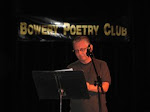Listen to "悲しき口笛"
Listen to "お祭りマンボ"
Get the two-disc collection here.
Japanese Enka Super-Diva Misora Hibari was arguably the most famous Japanese singer of all time--remarkable not just because Misora may have been first gen (some believe her parents held Korean passports), but because she started off, a la Shirley Temple, as a child star. (Not that she ever sounded like one; those recordings above, at least one of which was recorded for the film illustrated by the poster to the right, sound like no child I've ever heard.)
Wikipedia--to the extent one wishes to fully trust it--has about all there is in English on the superstar, a fact that completely boggles the mind and sort of, frankly, saddens me. Misora sold 68 million records in her lifetime, was a star on the order of Oum Kalsoum or Maria Callas, legendary and huge, a defining voice for generations of Japanese.
Here's a few paragraphs about her from the aforementioned Wikipedia entry: "Misora was born Kazue Katō in Isogo-ku, Yokohama, Japan. Her father was Masukichi Katō, a fishmonger, and her mother Kimie Katō , a housewife. Misora displayed musical talent from an early age after singing for her father at a World War II send-off party in 1943. He invested a small fortune taken from the family's savings to begin a musical career for his daughter. In 1945 she debuted at a concert hall in Yokohama, at the age of eight. At the same time, she changed her last name, Katō, to Misora (lit. 'beautiful sky'), at the suggestion of her mother. A year later, she appeared on a NHK broadcast, and impressed the Japanese composer Masao Koga with her singing ability. He considered her to be a prodigy with the courage, understanding, and emotional maturity of an adult. In the following two years, she became an accomplished singer and was touring notable concert halls to sold-out crowds.
"Her recording career began in 1949 at the age of twelve, when she changed her stage name to Hibari Misora, which means 'lark in the beautiful sky,' and starred in the film Nodojiman-kyô jidai. The film gained her nationwide recognition. She recorded her first single Kappa Boogie-Woogie for Columbia Records later that year. It became a commercial hit, selling more than 450,000 copies. She subsequently recorded "Kanashiki kuchibue", which was featured on a radio program and was a national hit. As an actress, she starred in around 160 movies from 1949 until 1971, and won numerous awards. Her performance in Tokyo Kid (1950), in which she played a street orphan, made her symbolic of both the hardship and the national optimism of post-World War II Japan.
"On January 13, 1957, Misora was attacked with hydrochloric acid, and injured in Asakusa International Theater. The criminal was an overly enthusiastic fan of hers. Fortunately, the wound did not remain in her face. In 1962, Misora married actor Akira Kobayashi, though the marriage ended in divorce only two years later, in 1964.
"In April 1987, on the way to a performance in Fukuoka, Misora suddenly collapsed. Rushed to hospital, she was diagnosed with avascular necrosis brought on by chronic hepatitis. She was confined to a hospital in Fukuoka, and eventually showed signs of recovery in August. She commenced recording a new song in October, and in April of 1988 performed at a concert at the Tokyo Dome. Her triumph was short-lived. Misora died on June 24, 1989 from pneumonia at the age of 52, at a hospital in Tokyo. Her death was widely mourned throughout Japan.
"Beginning in 1990, television and radio stations annually play her song 'Kawa no Nagare no Yō ni' on her birthdate to show respect. In a national poll by NHK in 1997, the song was voted the greatest Japanese song of all time by more than 10 million people."
I found the 2-disc CD linked to above at the Misora Hibara Museum in Kyoto in the summer of 2004 while on what was essentially my soon-to-be ex-wife and my honeymoon. (While it wasn't my idea to visit the museum, it wasn't like I had to actually be dragged there, either.) Misora even made a guest appearance in the first issue of my comic book series, Elsewhere (she's in the panel on the bottom left of the page below):
If you've never heard of Misora Hibari before, you're really in for a treat today. Enjoy!















































.jpg)






















































.jpg)


































